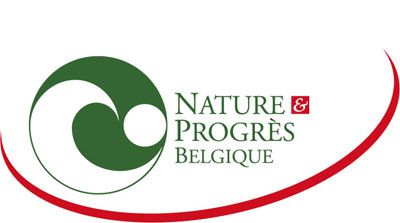YSS-60806 Cutting Edge Issues - Period 5 [2012/2013] - Wageningen University
Commissionner: Stefen Sherwood (Knowledge, Technology and Innovation Chair Group)
Adi Nugraha, Arjan van de Waerdt, Nika Skof, Vincent Delobel [MSc Development and Rural Innovation]
Opening a third path beyond Agriculture Modernization
Development 1.0 and 2.0
At the end of the World War Two, development discourses framed agricultural performances in terms of lacks, needs and deficiencies (Sherwood et al. 2012). Such discourses sought to legitimize massive technological transfer from the northern scientific institutions to the “efficient but poor” southern farmers, laying in the darkness of unfavourable conditions (i.e. Development 1.0). However, the realization of such salutary expert projects generated second order problems that one could not deny. Market integration and science applications (technification) produced harmful consequences on local populations and their environment, in the name of “modernization” (e.g. pesticide poisoning, reduced on-farm biodiversity) (Sherwood 2009).
In reaction to such unidirectional knowledge and technology transfers, alternative discourses emerged and demanded more “participatory” methods. In theory, these methods are people-centered and involve farmers in experiential learning through interactive designs (i.e. Development 2.0)(Sherwood 2009). By opening a room for different stakeholders to express their life-worlds and share their aspirations, participatory methods require the intervention of outsiders for facilitation and monitoring.
However, in practice, these participatory methods (incl. Farmers Fields Schools) are applied in very different ways that often neglect the core principles (Sherwood 2009). Thus, most of the participatory development projects remain expert-led and reproduce the modernization scheme of “delivered development”. In other words, these projects seek to get people accept the three pillars of modernization: the reliance on external knowledge and technologies (synthetic fertilizers, pesticides, ‘magic’ varieties) often socially constructed as superior (van der Ploeg 1993); the commoditization of inputs and outputs (externalization and market-based production) and the intermediation of relationships through markets (distancing markets i.e. producers and consumers cannot know each other) (Sherwood et al. 2012). “Organized irresponsibility” resulted from these recurrent processes of externalization; the consequences of “modern” practices are not internalized anymore but still affect rural populations and ecosystems (Sherwood 2009).
Besides these ‘classical’ methods, another path is possible by considering “social wild” itself as a resource for institutional change. Thus, the statuses of the actors, the practices and the novelties are redefined.
Firstly, we have to acknowledge the messy reality of social actors. Far from being isolated rational individuals, social actors face contradictory but inseparable interests, agenda, believes, knowledges, aspirations, and motivations. Their changing life-worlds contain tensions and uncomfortable incoherences. On the one hand, actors do not behave alone in a vacuum; practices are embedded in cultural norms, diverse relationships and narratives. On the other hand, the actors are able and knowledgeable; they have capacity to reflect upon their own practices (Sherwood et al. 2013).
Secondly, this new approach considers practices as “enactments” of the messy reality of actors; they are public expressions of a mediation between what is desirable and what is possible. Thus, researchers can observe them in the social wild.
Finally, it is time now to broaden the notion of innovation; novelties do not always bring breakthrough changes. Rather, researchers should carefully observe the heterogeneity of practices and notably the ‘deviant’ groups. From what we explained above, we can understand that actors generate novelties and new knowledges through their daily practices: they reinvent their ways of doing things, they respond to problems, and they break constraints by creating new arrangements.Within the messy reality of actors, there is room for change. Obviously, some of these novelties are incremental or not visible at first sight; they require even more attention from the researchers.
This is related to the notion of endogenous development i.e. that relies on local knowledge systems fed through social actors’ daily experiences. In farming, these experiences are characterized by a “permanent interaction between mental and manual labour” (van der Ploeg 1993, p. 209) and the continuous processes of observation, interpretation and evaluation i.e. dynamic local knowledge production (van der Ploeg 1993; 2008). Thus, there is a potential of change and improvement within specific knowledge systems or “art de la localité” (Mendras 1967, van der Ploeg 1993).
For instance, in agriculture, people respond to harmful impacts of modernization by developing new practices that rather internalize the consequences of actions. Thus, they create new roles, new conceptions of citizenry: e.g. “the citizen-consumer” pays attention to the consequences of his purchases, beyond the “rational” short term cost-benefit calculation. As well, at the collective level, people create new arrangements outside the formal and mainstream institutions that seek to bring producers and consumers closer to each other (Sherwood et al. 2013). “Unorganized responsibility” emerges from positively deviant practices. The emerging, self-organized practices are all attempts to cope with particular problematic situations. Thus, they have different potential for upscaling and extension.
Additional concepts we deem useful and important for gaining insight into such local practices, are trust and reciprocity. While economists have given considerable attention to the role of competition in economic matters, many experimental studies indicate that people are also motivated by cooperation, trust and reciprocity, which might be an essential component of development of modern economy (Hansen 2005; Ostrom and Walker 2005). Reciprocity, in turn, consists of rewarding kind actions and sanctioning unkind ones, where evaluation takes into account not merely the kindness of an action in terms of its consequences, but by its underlying intention as well (Falk and Fischbacher 2006).
Studies illustrate a complex relationship between trust and expectations of reciprocity (Ostrom and Walker 2005). While the degree of trust and trustworthiness varies a great deal depending on various circumstances, such as individual preferences toward payoffs, prior experience with the task/activity at hand, individuals' capacities to learn more about personal characteristics of others, and ability of actors to build reputations (Ostrom and Walker 2005), it has been suggested that certain conditions strengthen the relationship between trust and reciprocity by means of reducing transaction costs and enhancing innovation (Hansen 2005). Among the conditions are geographical concentration of networks (Hansen 2005), social history (Berg et al. 1995) and lower social distance (Buchan et al. 2002).
To conclude, we want to stress the relevance of practice-oriented ethnography to study self-organized change. Actually, such change has four essential characteristics that require researchers’ attention. Firstly, change occurs in a specific context that really matters and in relation with locally generated knowledge: change is situated. Secondly, change “in the social wild” is contingent and unpredictable: it may happen in a creative way, outside the conventions of universities and research centres. Thirdly, change can not be guided, monitored, planned: it may be incoherent. Fourthly, self-organized change is not only “good”: “negative” changes may also occur e.g. climate change, obesity, etc. In order to understand self-organized change, we need an ethnographic and participant observation of the heterogeneity of practices. To put it in a nutshell, we should look at what people actually do, unpack blinding categories and dichotomies, and focus particularly on deviant groups as sources of positive change. Far from considering social actors as invisible (van der Ploeg 1993) or as a passive victims, we should consider their knowledge and their agency to make change.
Authors of
this text:
Nika
Skof, Vincent Delobel
Related (and recommended) references:
Beck, U., Grande, E. (2010). Varieties of second modernity: the cosmopolitan turn in social and political theory and research. The British Journal of Sociology 61:3, pp. 409-443
Berg, J., Dickhaut, J., McCabe, K. (1995). Trust, Reciprocity, and Social History. Games and Economic Behaviour 10:1, pp. 122-142.
Buchan, N.R., Croson, R.T.A., Dawes, R.M. (2002). Cross-Cultural Investigation of Trust and Reciprocity in Social Exchange. American Journal of Sociology 108:1, pp. 168-206.
Falk, A., Fischerbacher, U. (2006). A theory of reciprocity. Games and Economic Behaviour 54:23, pp. 293-315.
Hansen, N. (2005). Competition, Trust and Reciprocity in the Development of Innovative Regional Milieux. Papers in Regional Science 71:2, pp. 95-105.
Mendras H. (1967). La fin des paysans, innovations et changement dans. Paris, S.E.D.E.I.S.: 364 p.
Ostrom, E., Walker, J. (2005). Trust and Reciprocity: Interdisciplinary Lessons for Experimental Research. Russell Sage Foundation Publications, 409 p.
Sherwood S. (2009). Learning fro Carchi. Agricultural Modernisation and the Production of Decline. Wageningen University, The Netherlands. Available at: http://edepot.wur.nl/7207.
Sherwood S., Leeuwis, C., Crane, T. (2012). Development 3.0: Development practice in transition. In: Farming Matters 28:4.
Sherwood S., Arce, A., Berti, P., Borja, R., Oyarzun, P., Bekkering, E. (to appear in 2013). Tackling the New Materialities: Modern Food and Counter-movements in Ecuador. Food Policy.
van der Ploeg, J. (1993). Potatoes and knowledge. In: M. Hobart (ed.). An Anthropological
Critique of Development. Routledge, London, UK, pp. 209-227.
van der Ploeg,
J. (2008). The New Peasantries. Struggles for Autonomy and Sustainability in an Era of Empire and Globalization. EarthScan, New York.
commenter cet article …
























/idata%2F4096338%2FCrops-May-2013%2FDSC01090.JPG)
/idata%2F4096338%2FTransition-P.-Temporaire---Cereales%2FDSC00730.JPG)
/idata%2F4096338%2FHersage-des-prairies---Traction-chevaline%2FDSC00266.JPG)
/idata%2F4096338%2FPremiere-parcelle-agroforesterie%2FDSC00228.JPG)
/idata%2F4096338%2F6--Tour-des-cultures---Novembre-2011%2FDSCN1191.JPG)
/idata%2F4096338%2FTour-des-cultures---Octobre-2011%2FDSCN1146.JPG)

